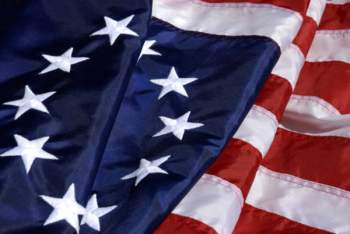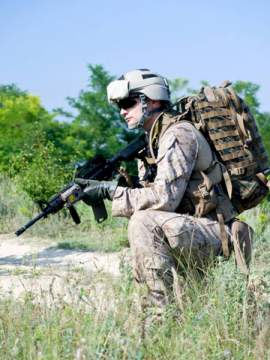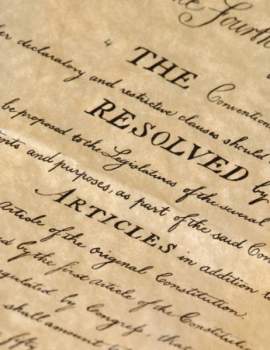
A Quick Guide to George Mason

Popular In Constitution
Purpose Of Lifetime Appointment And Pros And Cons Enumerated Powers Bicameral Legislature Background Article 3 Of The Constitution We The People 1st Amendment Who Wrote The Constitution Judicial Review Equal Protection Clause 5th Amendment 10th Amendment Three Fifths Compromise
Founding Fathers: George Mason
George Mason was born on December 11, 1725 on a farm in Fairfax County, Virginia. He is most famous for leading Virginia patriots during the American Revolution and his idea of inalienable rights, which influenced Thomas Jefferson when he was writing the Declaration of Independence. As a member of the Constitutional Convention, George Mason advocated for a weak central government and a strong local government. This advocacy was one of the factors that led to the adoption of the Bill of Rights.
George Mason was born as the son of George and Ann Thomson Mason on his family’s plantation in Fairfax County. After his father drowned in a boating accident in 1735, George Mason left his mother to live with his uncle, John Mercer. His uncle had a vast collection of volumes in a library, with around 500 books dedicated to law. After studying with tutors and going to a private school in Maryland, he took over his inheritance at the age of 21 of about 20,000 acres of land in both Maryland and Virginia.
As a near neighbor of George Washington and landowner, George Mason took a leadership role in local affairs. He also became interested in Western expansion of America and was very active in the Ohio Company, which was organized in 1749 in order to sell land and develop trade on the upper Ohio River. Around the same time, George Mason also helped to found the town of Alexandria, Virginia. Because of family problems and poor health, George Mason typically stayed away from public office, although he accepted election and became a member of the Virginia House of Burgesses in 1759. With the exception of his membership in the Constitutional Convention at Philadelphia in 1787, being a member was the highest office George Mason ever held. However, he was still very crucial in shaping political institutions in the United States.
As a leader of the Virginia patriots from 1775 to 1783 on the eve of the American Revolution, George Mason also served on the Committee of Safety. In 1776, Mason drafted the state constitution in Virginia, where his declaration of rights became the first authoritative description of the doctrine of inalienable rights. George Mason's Declaration of Rights was known to Thomas Jefferson, who was influenced by it when drafting the Declaration of Independence. The Virginia's Declaration of Rights soon became a model by most of the states for their own state constitutions and also became incorporated in some form to in the federal Constitution. From 1776 to 1788, George Mason also served as a member of the Virginia House of Delegates.
As a member of the Constitutional Convention, George Mason strongly opposed the compromise which permitted the continuation of the slave trade in the United States until 1808. Although Mason was a Southerner, he considered the slave trade “disgraceful to mankind.” Mason also preferred education for bondsmen and also supported a system of free labor. Because Mason objected to the large and indefinite powers placed in the new government, he joined many other Virginians in opposing the adoption of the Constitution. As a Jeffersonian Republican, George Mason felt that local governments should be kept strong while the central government should be weak. Mason’s criticism of the Constitution helped bring about the ratification of the Bill of Rights to the United States Constitution.
Soon after the Constitutional Convention, George Mason retired to his home, Gunston Hall. He passed away on October 7, 1792 and was buried at Gunston Hall.


















